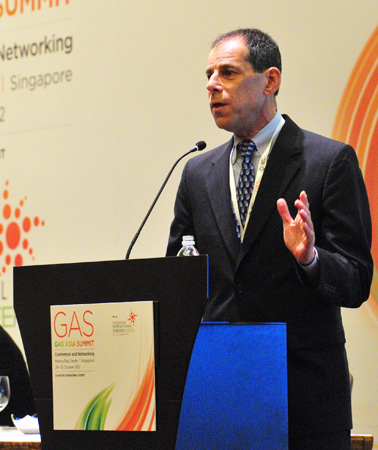For attendees of the 16th Annual International Conference on Economics of Infrastructure, what had meant to be a lens into how the United States government balances social pressure with its energy needs turned out to raise even more questions than it answered.
As part of the day-long conference on May 24th, a US Department of Energy director, Dr. Mitchell Baer, told a small lecture room of participants from academia and industry that his oil and gas policy office was not capable of quantifying an average person’s energy use and did not know what type of energy the US people wanted. The Faculty of Technology, Policy, and Management hosted his talk.
The conference took place just as the European Union’s carbon market has collapsed. Carbon emission credits have tumbled from more than $40 (€31) per credit in mid-2008 to less than $4 (€3) in recent weeks. When effective, the cap and trade scheme leverages economic incentives to curb industrial pollution.
Dr. Baer, citing data from the US Energy Information Administration’s Annual Energy Outlook 2013 Early Release report, said that the use of shale gas in the United States would increase through 2040, with demand surpassing supply around the year 2020. In the transportation sector, energy use from all sources, including shale gas, would increase from three to six percent of total energy consumption by 2040. Currently, the US has surplus of natural gas reserves.
The relatively low price of US natural gas is attractive to countries like Japan who are resource-poor. Freeport LNG will be one of the first US companies to internationally export liquefied natural gas.
Despite the open data that Dr. Baer presented to the audience, most of his talk centered on how difficult it was to obtain quantitative energy consumption and demand figures. He said, “I would dare say that I don’t know how much energy I use a day.” A TU Delft moderator later informed him that many EU products are labeled with icons that indicate the products’ energy impact.
Canadian MSc student Barend Dronkers asked, “What is the best way to make policy?” to which Baer responded that the DoE is not involved in regulation. Before coming to TU Delft, Dronkers worked as an engineer with Shell Facilities Energy in Alberta for three years. Of his post-graduation plans, with idealism peering out from behind his horn-rimmed glasses, he said, “I want to do something different.”



Comments are closed.